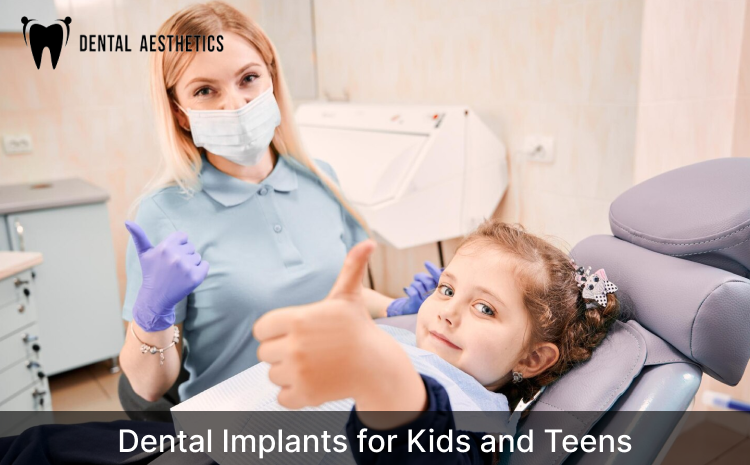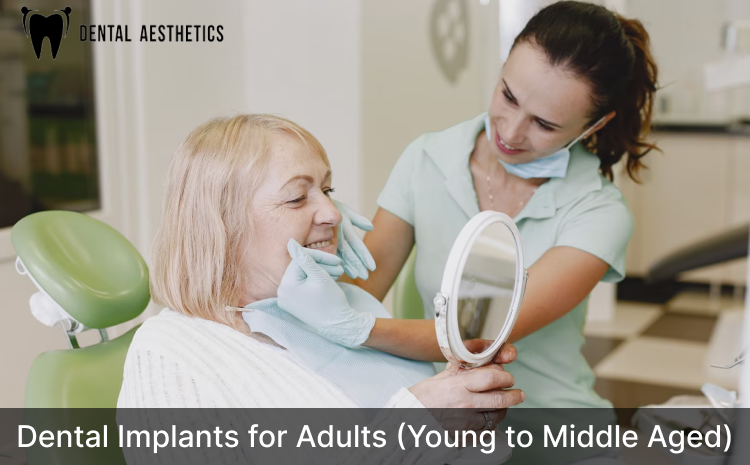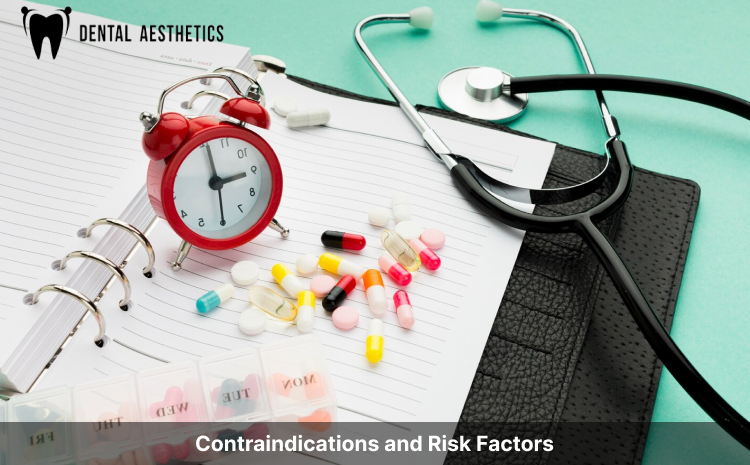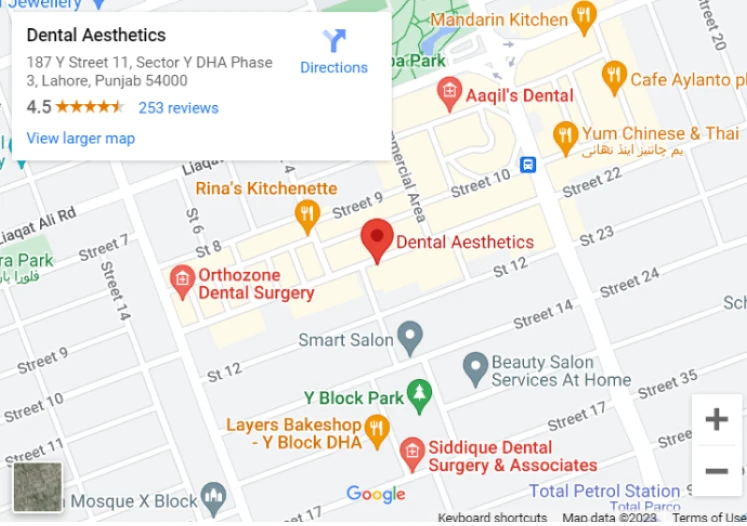Pediatric to Adult: Dental Implant Eligibility Across Ages

October 13 , 2025
All ages can lose a tooth, from congenital absence or trauma in children to decay or disease in older adults. This leads to a common question many raise: Can anyone get dental implants? The answer is usually everyone, but dental implant eligibility is dependent on a few key factors, particularly age, jaw growth, bone density, overall health, and/or risk factors. Eligibility is an important consideration regarding dental implants, and this is a common concern for a range of ages. There is a lower age limit for dental implants due to natural growth patterns, but there is virtually no upper age limit for dental implants as long as the individual is in good health. If you are seeking dental implants in Lahore or considering treatment elsewhere, it is important to understand the factors that contribute to successful tooth replacement.
This detailed guide identifies specifically who can get dental implants and the criteria for all the different biological factors for dental implants at any stage of life, and who will not be eligible for dental implants, and what other treatment options exist in the meantime. By knowing who is eligible and who is not, you will be taking the first steps toward a perfect, permanent smile.
Who can get Dental Implants: Dental implant eligibility
The key issue of who can get dental implants is focused on the maturity and health of the jawbone. The expert team at Dental Aesthetics Lahore assesses the various factors governing dental implants for youth, adults, and seniors.
Dental Implants for Kids and Teens

When Would It Be Appropriate for a Child or Teen to Have Dental Implants?
Typically, pediatric dental implants are rare, particularly in children and adolescents, because the jaw is still growing. Most skeletal maturity occurs in the late teenage years/early twenties and is generally observed to occur earlier in girls than in boys. For example, an average 16-year-old or younger patient is typically not considered for an implant because the child is in the middle of growing, and any consideration of dental implants would need to consider the growth process.
There could be, however, very rarely considered indications if a child had congenitally absent teeth/agenesis, or, for another example, if a child was involved in a trauma that may have warranted dental implant consideration in very limited circumstances, and if imaging satisfactorily demonstrated consistent skeletal bone growth over time and has not or would not in some other way disturb growth.
In the context of when it would be considered appropriate for a child or teen, a temporary prosthetic or removable prosthetic prosthesis may be fabricated and used in the interim periods while waiting for a mature jaw. During this period, children can utilize temporary prosthetics or removable partial dentures to keep space and function while preserving bone tissue. Effective outcomes will depend on a close relationship among the pediatric dentist, orthodontist, and implant professionals. If you are seeking pediatric dental tooth loss options in Lahore, then ensure the child is assessed by a team that is aware of growth and development factors.
Dental Implants for Adults (Young to Middle Aged)

Adults represent the greatest cohort of individuals qualifying for a dental implant. Growth concerns are eliminated and replaced with a focus on the foundation of the support.
Bone Density for Dental Implants: Sufficient bone density for dental implants is typically an essential factor for a high dental implant success rate, based on age and verified by specialists at Dental Aesthetics Lahore as part of the planning process.
Health Considerations: Non-controllable diabetes, immune health, or medications—all of these can affect healing and success.
Oral environment: Healthy gums and good oral hygiene are also important for the long-term survival of the implant.
Lifestyle factors: Non-smokers are more likely to achieve positive outcomes. Nonsmokers will be more likely to achieve this.
Lifestyle factors: Non-smokers are more likely to achieve positive outcomes. Nonsmokers will be more likely to achieve this.
Some health conditions may be complete contraindications for implants, meaning the implants should not be placed, and other diseases are relative contraindications that could be managed proactively through medical or dental plans.
Dental Implants for Seniors: Things Seniors Need to Consider Prior to Getting Implants
Elderly individuals face different challenges than younger individuals, but aging itself is not a reason to avoid getting implants. Implants offer many benefits, including a restorative increase in chewing ability, nutrition, confidence, and diminished reliance on dentures. These challenges for seniors include:
- Higher rates of osteoporosis, or thinning of the bones
- Common systemic diseases like diabetes and heart issues
- Use of medications like bisphosphonates or blood-thinning agents
- Slightly reduced capacity for healing
- Increased risk for peri-implantitis (infected area around the implant)
If you want to see dental implants for elderly patients in Lahore, please contact a qualified implantologist, such as the ones at Dental Aesthetics, to assess your own risks and benefits.
Dental Impact Risk Benefit Framework by Age Group
| Age Group | Eligibility Consideration | Treatment Approach Commonly Done |
|---|---|---|
| Children & Teens | Is the bone done developing? Is there skeletal maturity? | Usually would suggest they wait for the could use temporaries or removable partials. |
| Young to Middle-Aged Adults | Jaw growth is done, bone density is still good, and gums are probably healthy | Dental implants are usually considered the ideal treatment option for this age group |
| Seniors | Potential for bone resorption, systemic health problems | Possible with careful planning and maintenance, usually a staged protocol |
Contraindications and Risk Factors

Can someone be disqualified from implants?
Since there is a wide array of risk factors to consider before getting dental implants, a completely individualized evaluation for candidacy for implants should be performed by an appropriately qualified implant team, which usually consists of a dental implant surgeon, a prosthodontist, and a periodontist. If you are considering a dental implant specialist in DHA Lahore, our qualified team of professionals at Dental Aesthetics will give you the best chance of success.
Absolute contraindications
This is where it is heavily recommended not to proceed with the dental implant procedure. This applies to all age groups, but specifically to the elderly.- Recent heart attack or stroke
- Active treatment for cancer
- Uncontrolled bleeding disorders
- Severe psychiatric illness
- Immunosuppression
- IV bisphosphonate therapy
Relative contraindications (will create increased risk, but manageable):
In these cases, the dental implant procedure will create an increased risk, but it will still be somewhat manageable through expert care and treatment protocol. This applies to all age groups, but specifically to the young adults and middle-aged segment.- Smoking
- History of periodontal diseaser
- Bruxism (teeth grinding
- Poor bone quality or volume
- Previous radiation therapy to the jaws
- Poor oral hygiene
Manageable conditions
These are cases where the patient has controlled diabetes or stabilized systemic diseases. Those patients may be eligible for treatment if medically cleared and able to manage conditions with medical follow-up.With proper medical clearance, improved systemic health, and preparatory conditions such as smoking cessation or dental care in healthy patients, many patients are eligible for extractions and implants.
Decision Tree & Steps Evaluating Candidate for Dental Implant Eligibility
The following stepwise process is important for individualized, safe treatment, orchestrated by the team of professional dental experts at Dental Aesthetics.
| Steps | Procedure | Explanation |
|---|---|---|
| 1 | Preliminary Screen | Missing teeth, reason for interest in implant, age/growt |
| 2 | Medical Evaluation | Consider the patient's overall systemic health, medications, and lab tests |
| 3 | Imaging/Assessment of Bone | CBCT Scan, Panorex X-ray |
| 4 | Imaging & Bone Evaluation | CBCT and/or panoramic X-rays to assess bone density |
| 6 | Risk managemen | Smoking cessation, treatment of gum disease, and control of systemic disease |
| 7 | Bone augmentation (if needed) | Bone graft, Sinus lift |
| 8 | Implant placement & prosthetic pla | Immediate versus delayed loading protocols |
| 9 | Maintenance | Regular hygiene assessments and peri-implant maintenance |
Conclusion
Almost anyone could receive dental implants, but real qualification pertains to age, bone density, health status, and risk factors. Children generally would have implants delayed until after jaw growth is complete (late teen years). In adults and seniors, health and bone support are more to consider than just age. Your implant team needs to work together to examine it carefully. If you are in Lahore and wish to know if you qualify to get dental implants, arrange a consultation with a dental implant specialist in Gulberg Lahore, or you can receive the best dental practice in Lahore for a personalized treatment plan.
Frequently Asked Questions (FAQs)
Q: Can everyone have dental implants?
Not everyone is going to qualify; if they do not have enough bone to support the implant, don't have controlled medical conditions, or are still growing in their jaw, we may disqualify or delay treatment.
Q: What's the youngest age a person can be to get dental implants?
Dental implants are generally only placed after skeletal growth has stopped. This is generally considered to be from the late teens to the early twenties. Placement of dental implants needs to be done after the growth of the jawbone is done, as placement of implants in a growing jaw could lead to malposition or other issues as growth occurs.
Q: Can a 15-year-old get an implant?
In general, no, they are still too young because of continued growth, but there are always some exceptions. If an implant was placed at such an age, it could shift the position of the implant in conjunction with jaw expansion. On rare occasions, a dental specialist may be consulted and determine that it can be placed based on their clinical evaluation.
Q: Is there an age limit for dental implants
Yes. There is technically no upper age limit for dental implants. If a patient is of good health, and has the appropriate bone density to support the implant, this is possible without regard to age. Many patients enter their senior years and are successfully placed with implants with restored function and confidence.
Q. Does age impact the success of dental implants?
Age, in itself, has a minimal effect on the success rate of dental implants. What is most important is the patient as a whole, their health, quality of bone and amount of oral hygiene. Even as patients age the success of implants is still possible.
Q: What medical conditions would disqualify adults from dental implants?
Some medical conditions could make implants unsafe or less successful. These include uncontrolled diabetes, recent heart attack, active cancer, or use of immunosuppression. A full medical assessment is always completed prior to treatment.
Q: Can seniors have full-mouth dental implants?
Yes, seniors can certainly have full mouth dental impplants, with appropriate assessment and planning. Proper oral hygiene and regular visits to the dentists are critical to dental learning and planning while maintaining good hygiene are very important, and this will extend the length of function.
Q: How long do implants last?
Implants can last for decades or a lifetime if you care for them as directed.
Q: Does it hurt to get dental implants?
The procedure is done with anesthesia and will be manageable after the procedure.
Q: Are dental implants worth it for older people?
Yes, they guarantee the quality of life, function, and confidence in older adults.



